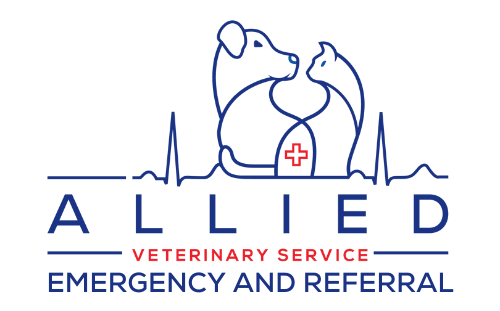Laryngeal Paralysis and Tie-back Surgery
Introduction
Laryngeal Paralysis is a condition that affects the larynx (voice box) in dogs, leading to difficulty breathing, especially during exercise or excitement. This condition is more common in middle-aged to older large breed dogs and can significantly impact their quality of life. The Tie-back surgery, formally known as arytenoid lateralization, is recommended to improve airway flow and alleviate symptoms.
Why Tie-back?
In dogs with Laryngeal Paralysis, the muscles that normally open the larynx during breathing fail to function properly, causing the airway to remain closed or partially closed. This can lead to severe breathing difficulties, distress, and in some cases, life-threatening situations. Tie-back surgery offers a solution by permanently opening one side of the larynx, thereby improving airflow.
Why Choose Allied Veterinary Service for Your Dog’s Surgery?
- Our surgeons have undergone rigorous residency training in small animal orthopedic and soft tissue surgery.
- Our doctors will care for your pet 24/7 before and after your pet’s surgery and tailor treatment according to the patient’s needs.
- We can provide continuous oxygen therapy, which is especially important for tie-back patients.
What Does the Surgery Involve?
The Tie-back surgery involves suturing one side of the arytenoid cartilage in an open position, which widens the laryngeal opening and facilitates easier breathing. This procedure is delicate and requires precise execution to maximize benefits while minimizing risks.
Benefits of Surgery:
- Improved Breathing: Immediate relief from the distressing symptoms of Laryngeal Paralysis, allowing your dog to breathe more easily.
- Enhanced Quality of Life: With the improvement in breathing, your dog can enjoy a more active and comfortable life.
- Reduced Risk of Complications: The surgery decreases the risk of life-threatening situations caused by Laryngeal Paralysis.
Risks and Complications:
- Aspiration Pneumonia: The most significant risk post-surgery is the increased risk of aspiration pneumonia due to the inability to fully close the larynx.
- Surgical Complications: Though rare, complications such as suture failure or infection at the surgical site can occur.
- Voice Changes: Some dogs may experience changes in their bark due to the altered anatomy of the larynx.
Recovery and Aftercare:
- Restricted Activity: It's crucial to keep your dog calm and limit their activity post-surgery to prevent complications.
- Monitoring: Close observation for signs of coughing, difficulty breathing, or any changes in behavior is essential for early detection of complications.
- Diet and Feeding: Modifications to your dog’s feeding routine may be necessary to reduce the risk of aspiration.
Cost Considerations:
Our team is prepared to provide a detailed breakdown of costs associated with the Tie-back surgery, including all aspects of pre-operative and post-operative care.
Final Thoughts:
Opting for surgery is a significant decision for any pet owner. At Allied Veterinary Service, we are committed to supporting you through this process, offering expert advice, and delivering compassionate care to ensure the best possible outcome for your dog.
Legal Disclaimer:
This pamphlet is for informational purposes only and is not intended to replace professional veterinary advice. Treatment outcomes can vary based on individual circumstances. Always consult with a veterinarian to determine the most appropriate treatment for your pet.
Contact Us:
For more information or to schedule a consultation, please contact us. Our dedicated veterinary team is committed to providing the best care for your pet.
Allied Veterinary Service - Emergency and Referral
8301 93rd Ave N, Brooklyn Park, MN 55445
(763) 463-9800
Open 24 hours
